Sri Lankan millionaire businessman’s offshore trusts revealed
The International Consortium of Investigative Journalists (ICIJ) received a noncommittal response from Sri Lankan businessman Thirukumar Nadesan, refusing to answer questions regarding millions of dollars he and his wife hold in offshore trusts and shell companies.
Responding through the couple’s London-based law firm, they claim they are “under no obligation” to explain their financial dealings to journalists and that the information sought by ICIJ, an international network of investigative journalists, was “self-evidently private and confidential”.
Details regarding Mr and Mrs Nadesan’s offshore wealth are contained in a cache of leaked documents from Asiaciti Trust, a Singapore-based financial services provider. It shows their connection to several offshore entities which were used to anonymously store wealth and make acquisitions in such assets as artwork and luxury apartments. The ICIJ’s analysis of a single Nadesan trust’s financial statements alone amounted to around US$ 18mn.
The ‘Washington Post’ and ‘The Guardian’ newspapers were among a large number of news outlets that broke the ICIJ investigations to offshore accounts of dozens of political leaders and businessmen around the world late last night.
The records were among nearly 12 million files from Asciaciti and 13 other offshore providers obtained by ICIJ and shared with global media partners as part of the 14-month Pandora Papers investigation. Asiaciti has said the firm is “committed to the highest business standards, including ensuring that our operations fully comply with all laws and regulations.”
In 2016, Mr Nadesan was arrested by the Financial Crimes Investigations Division (FCID) in connection with a land and house in Malawana with “mysterious” ownership. In the letter to ICIJ, he contested the charges as “spurious and politically motivated” amounting to a “travesty of justice”. But for the delays caused by COVID-19, his lawyers insisted, he is confident he would have been exonerated by now.
The leaked documents—nicknamed the ‘Pandora Papers’—held information regarding Mr Nadesan’s activities as far back as 1990, when he set up a trust and a shell company in the Channel Islands named Pacific Commodities Ltd. It collected millions of dollars advising foreign companies doing business with the Sri Lanka Government.
Another company named Rosetti Ltd was set up on the Channel Island of Jersey in 1991 to provide consulting services “mainly in relation to inward investment into Sri Lanka”. Rosetti was then used to buy an apartment in Sydney near Darling Habour and three flats in London, one of which was resold and other rented out “on a commercial basis,” the documents show. These dealings are all backed up by paperwork in the leaked cache, ICIJ said.
In 2012, Asiaciti set up a trust for Mr Nadesan in New Zealand, later moving it to the Cook Island in the South Pacific. Meanwhile, Pacific Commodities was transferred by Asiaciti from the Channel Islands to Samoa, another South Pacific island nation. By 2014, Mr Nadesan’s consulting company had acquired 51 pieces of valuable artwork estimated to be worth more than US$ 4mn. Some of these were held in a London warehouse, others at Geneva Freeport, another ultra-secure storage facility.
The files also show that Mr Nadesan applied for a Cyprus passport in 2014. They don’t say whether this endeavour was successful. They also reveal that he began preparations in 2016 to open a Dubai bank account for his investment company, which owned a Dubai-registered asphalt firm.
In confidential emails to a bank officer, he introduced himself as the husband of a retired politician in “semi-retirement” and owner of a 60-room hotel on the eastern coast of Sri Lanka. He signed the emails “TN.”
When the bank employee requested all statements from company bank accounts in the United Arab Emirates, as well as other business records, to comply with the bank’s due diligence policy, Mr. Nadesan emailed Asiaciti officers instructing them to limit the amount of information they disclosed: “WE CANNOT [yield to] EVERY WHIM @ FANCY A BANK REQUIRES WITHOUT GIVING ANY COMMITMENT THAT WE WILL BE ON BOARDED,” he wrote in all caps. “THESE ARE CONFIDENTIAL SENSITIVE INFORMATION[.] WE HAVE TO DRAW A LINE AT A POINT”
"Kindly note [that the company] is NOT going to exhibit all bank accounts it holds in the UAE . . . under any circumstances, even if an account is not going to be opened," Mr Nadesan told the bank in a separate email, according to ICIJ.
Just before his arrest in 2016, he wrote a personal letter found in the leaked files to then Prime Minister, Ranil Wickremesinghe, proclaiming his innocence. Mr. Nadesan said he wasn’t aware until he read news reports that a VIP had built a house on his property. Then he sold the land, he said, to avoid “harm to [his] name and reputation.”
“I request your good self to appreciate that I have not done anything improper or illegal and do justice by me,” Mr Nadesan wrote. “My transactions are transparent and matters of records.”
Asiaciti continued to work for Mr Nadesan, managing his trusts and shell companies, which at that point held about $10 million in assets. Four years later, in 2020, Singapore’s financial authority would fine Asiaciti $793,000 for failing to implement anti-money- laundering policies and to identify clients at risk of committing financial crimes.
Mr Nadesan instructed Asiaciti that upon his death, the art, as well as the apartments in London and Sydney, would belong to his two children, who in the meantime had obtained Cypriot citizenship, according to the leaked files.
The Pandora Papers reveal that the company had received annual loans of $140,000 from Rosetti Ltd., the Jersey company owned by Mr and Mrs Nadesan.
Asiaciti officers said they screened some of Mr Nadesan’s transactions for suspicious activity and checked media reports for allegations of criminal behaviour. But an internal inspection report suggests that the Asiaciti officer in charge of anti-money-laundering reviews didn’t provide detailed information on Nadesan’s background—which could have raised concerns about the wealth flowing out of Sri Lanka and into his offshore accounts. And Asiaciti employees were “unable to locate” periodic records on assessments of the client’s activities.
Asiaciti told ICIJ that the firm maintains a strong compliance program. “However, no compliance program is infallible,” it added in its emailed response. “When an issue is identified, we take necessary steps with regard to the client engagement and make the appropriate notifications to regulatory agencies.”
-
Still No Comments Posted.




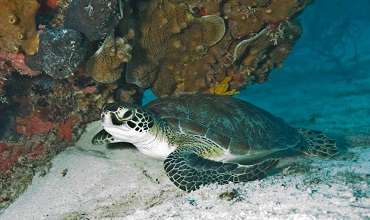

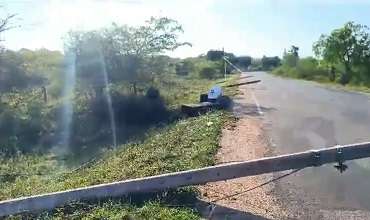
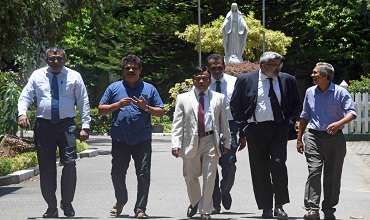

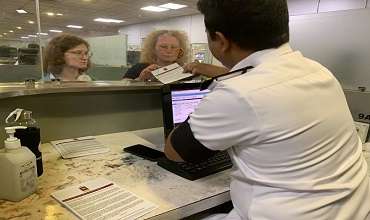
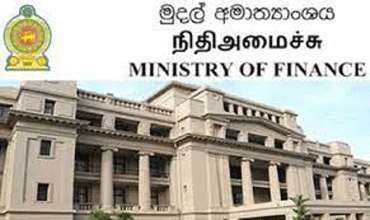

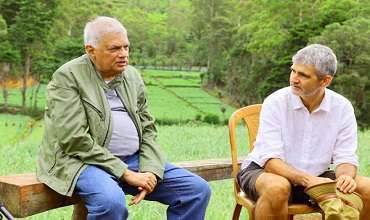
Leave Comments